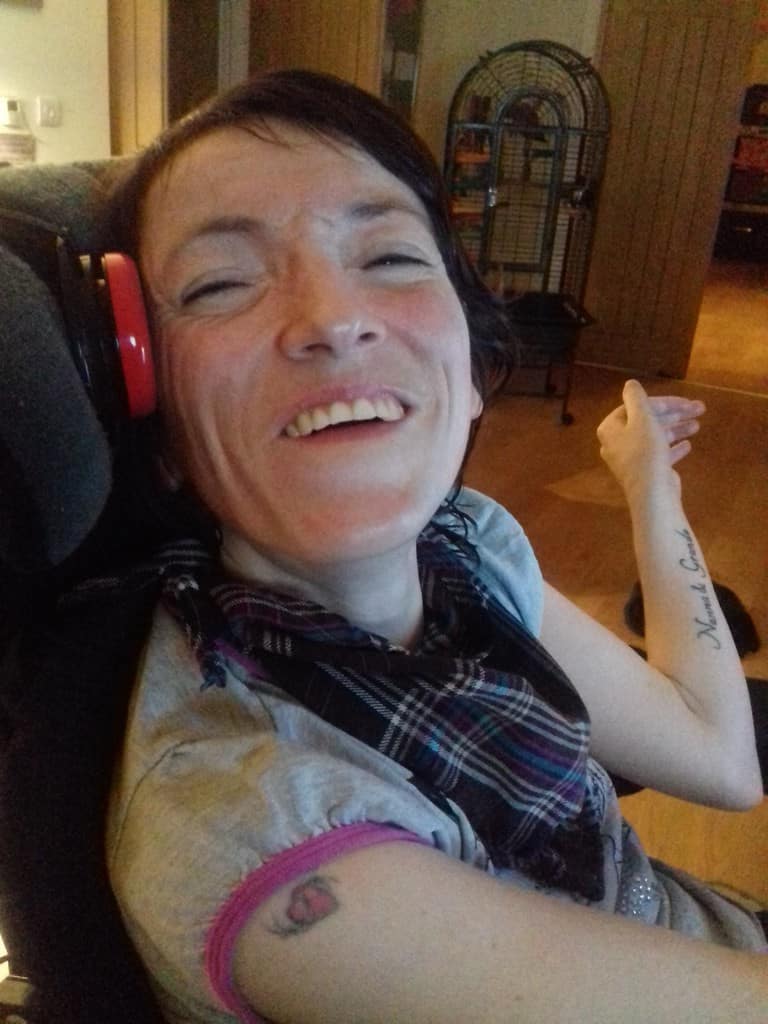A CHANGE in the law is guaranteeing special equipment for people in Dumfries and Galloway who might otherwise struggle to communicate.
Dumfries and Galloway Health and Social Care Partnership is now taking on the duty to provide technology including the kind used by Rachael Monk, a 35-year-old from Annan with complex cerebral palsy.
Rachael said: “I feel very strongly about people having the opportunity to get communication aids but also have the follow up support and training to use them.
“I have so many friends who have been provided with the equipment but haven’t had the adequate support and help to use it and have since lost interest.”
Rachael said: “My talker has changed my life. I can have conversations with my family and friends, ask people questions, tell jokes, express my thoughts and feelings and ensure my opinions are always heard.
“I am able to chat to my best friend in Canada and tell her what I have been doing.
“I would not be without my talker. It is the most important piece of equipment in my life; it’s part of who I am.”
The introduction of Part 4 of the Health (Tobacco, Nicotine etc. and Care) (Scotland) Act 2016 means that Dumfries and Galloway Health and Social Care Partnership now has a duty to provide both equipment and support.
Associate Director of Allied Health Professionals Joan Pollard said: “Communications equipment and support for those who have difficulty speaking has changed lives.
“And for the first time, legislation in Scotland now means there is a duty to ensure that children and adults can access the equipment and support they need to be able to participate fully in society.
“Dumfries and Galloway Health and Social Care Partnership is very pleased to be taking on this duty, and going forward anyone in the region who has difficulty speaking now has the right not only to obtain communication equipment through us but also access help with how to use it.”
The new legislation, the Augmentative and Alternative Communication (AAC) Collaborative Health (Tobacco, Nicotine etc. and Care) (Scotland) Bill, is also being referred to as ‘Aikman’s Law’.
The change in the law is credited to motor neurone disease (MND) campaigner Gordon Aikman, who died in February last year at the age of 31.
Mr Aikman had been diagnosed with the progressive illness in June 2014.
Launching the Gordon’s Fightback campaign he raised more than £600,000 for MND Scotland to fund research into a cure, while also campaigning for better support.
Hailing the introduction of the new legislation, Health Secretary Shona Robison said: “We’re committed to improving the lives of people who have lost their voice or have difficulty speaking.”
She added: “These forms of equipment can make a real difference in the lives of people facing profound challenges, making sure they have a voice to be heard.”
And Rachael Monk says the technology should be easily available and commonplace.
Rachael said: “I think everyone who can’t communicate verbally should have the opportunity to use a communication aid, it could change their life too.
“They should be as ordinary in everyday life as the use of spectacles to help people see or hearing aids to help people hear.”





